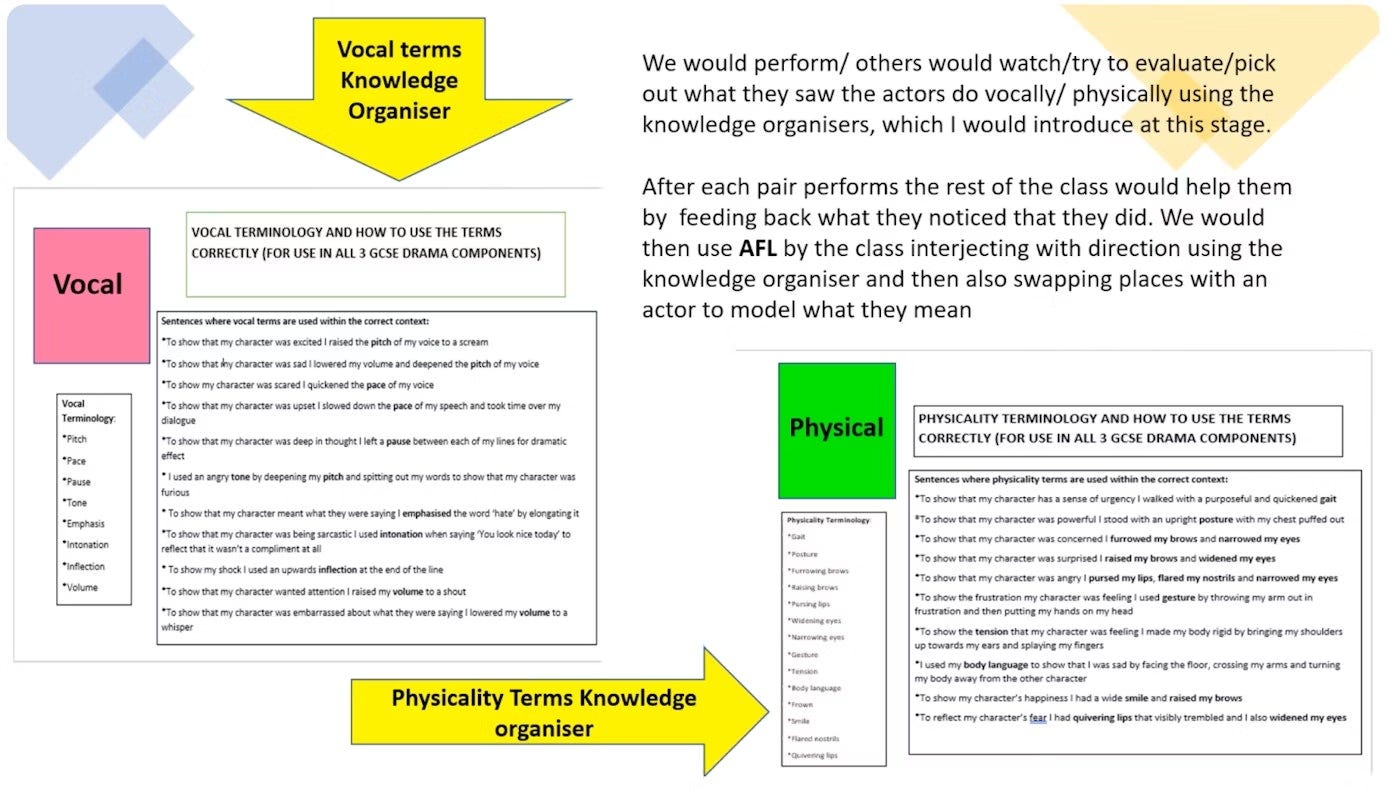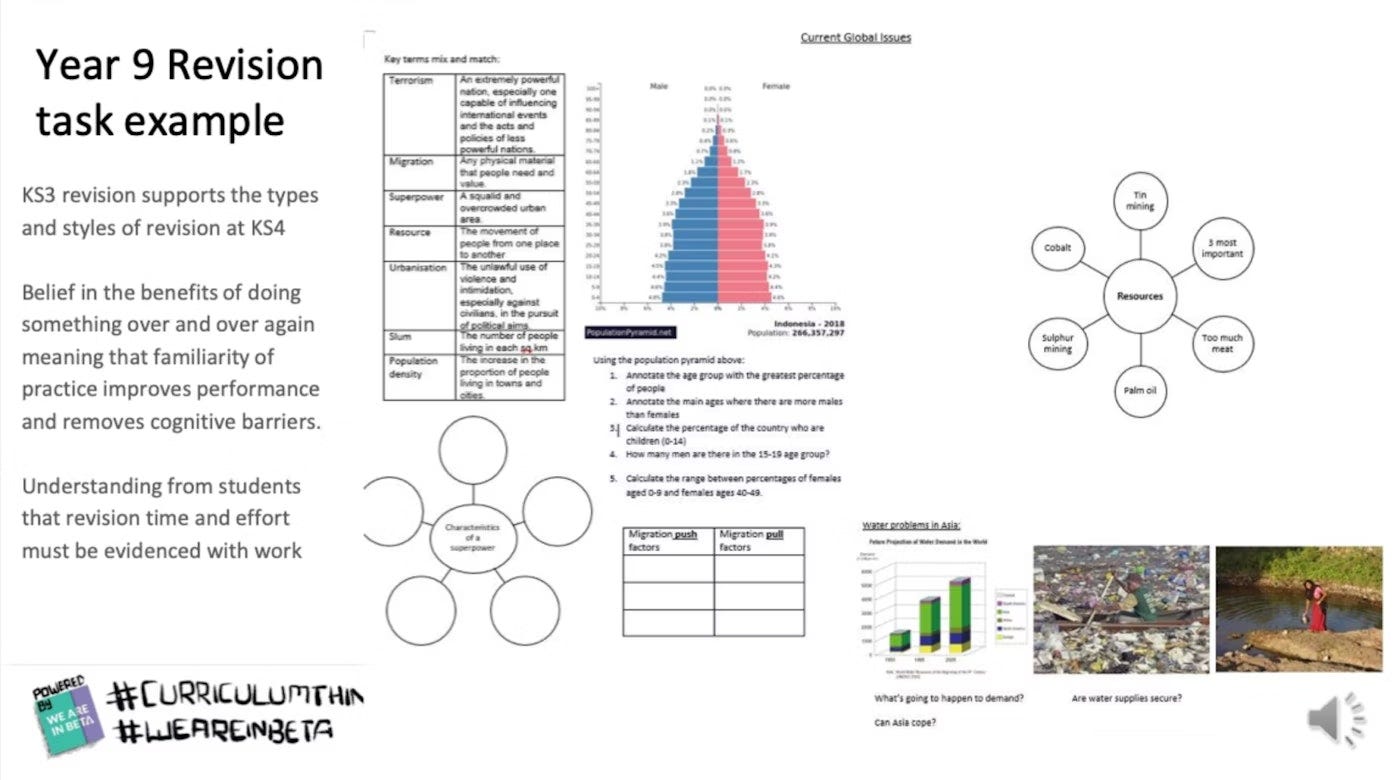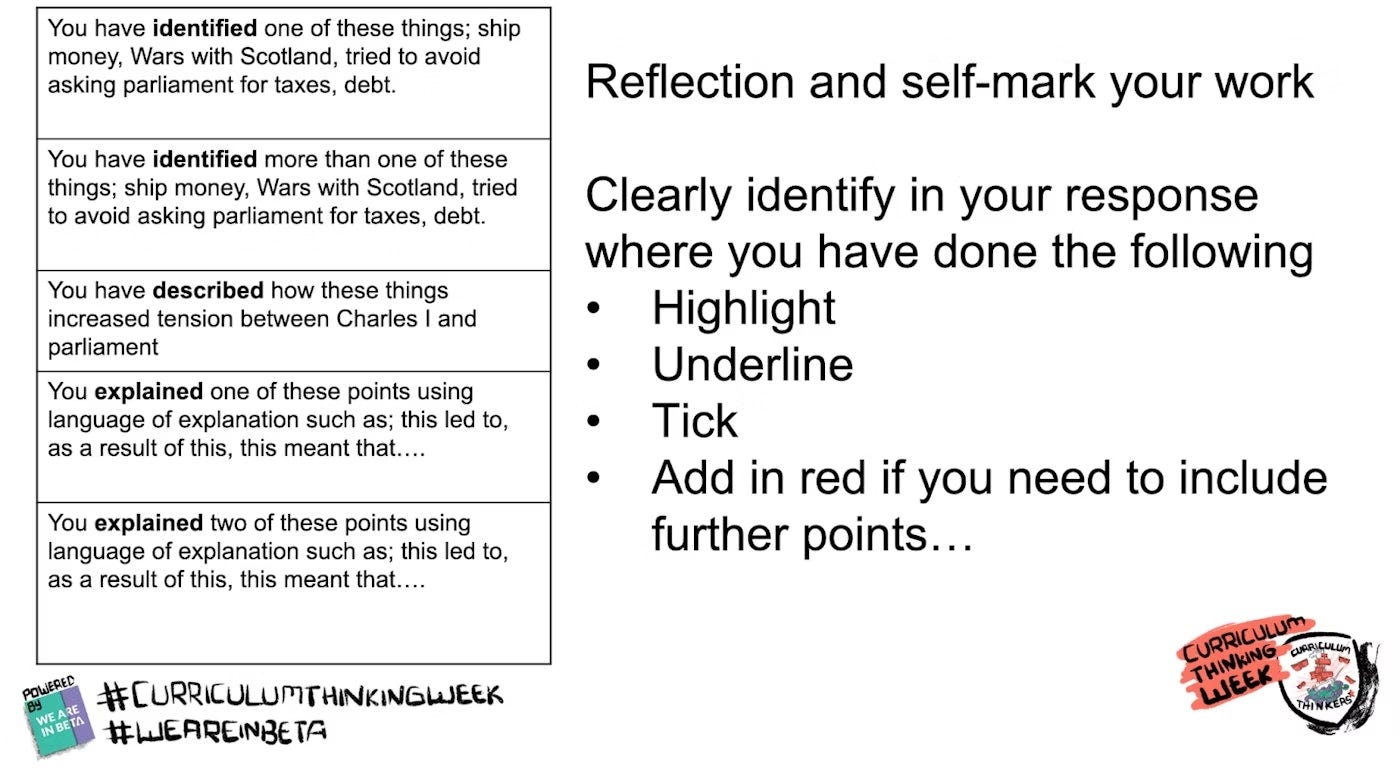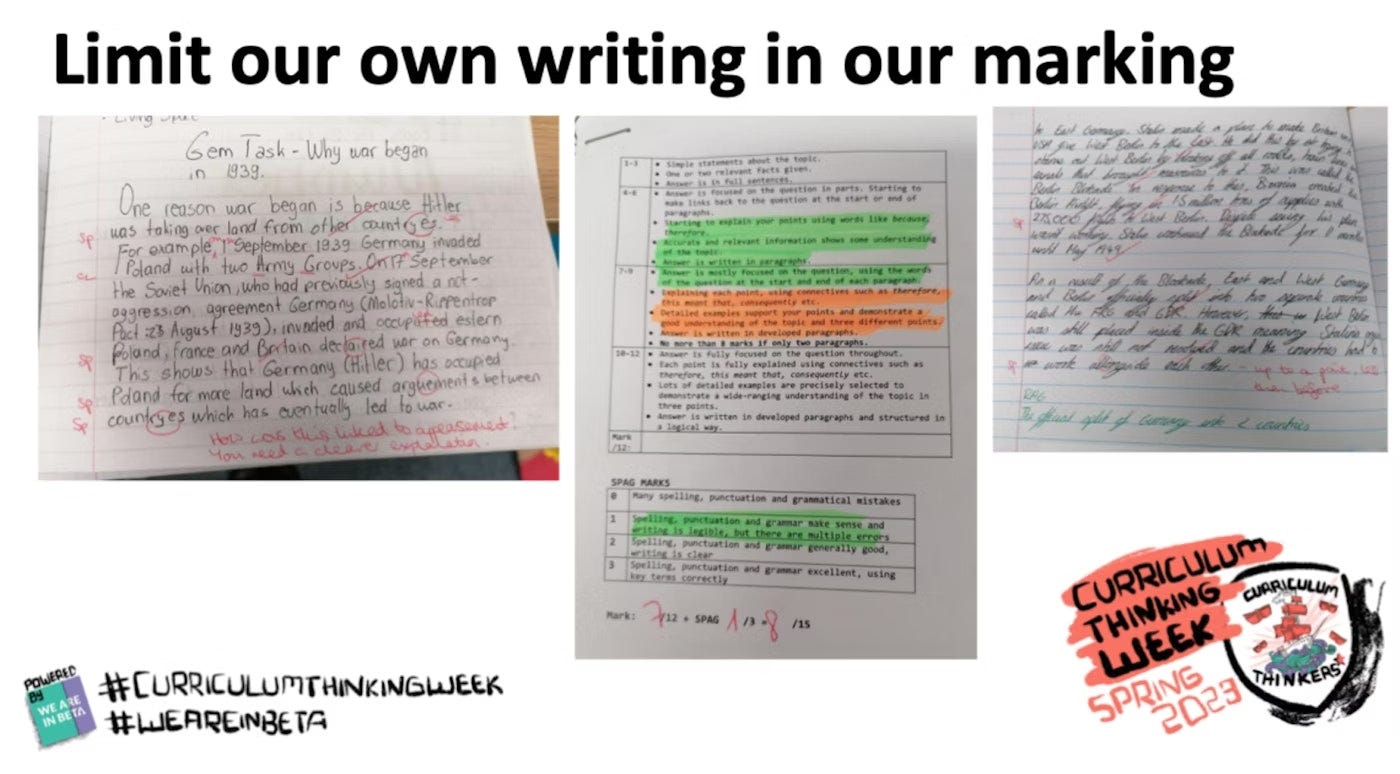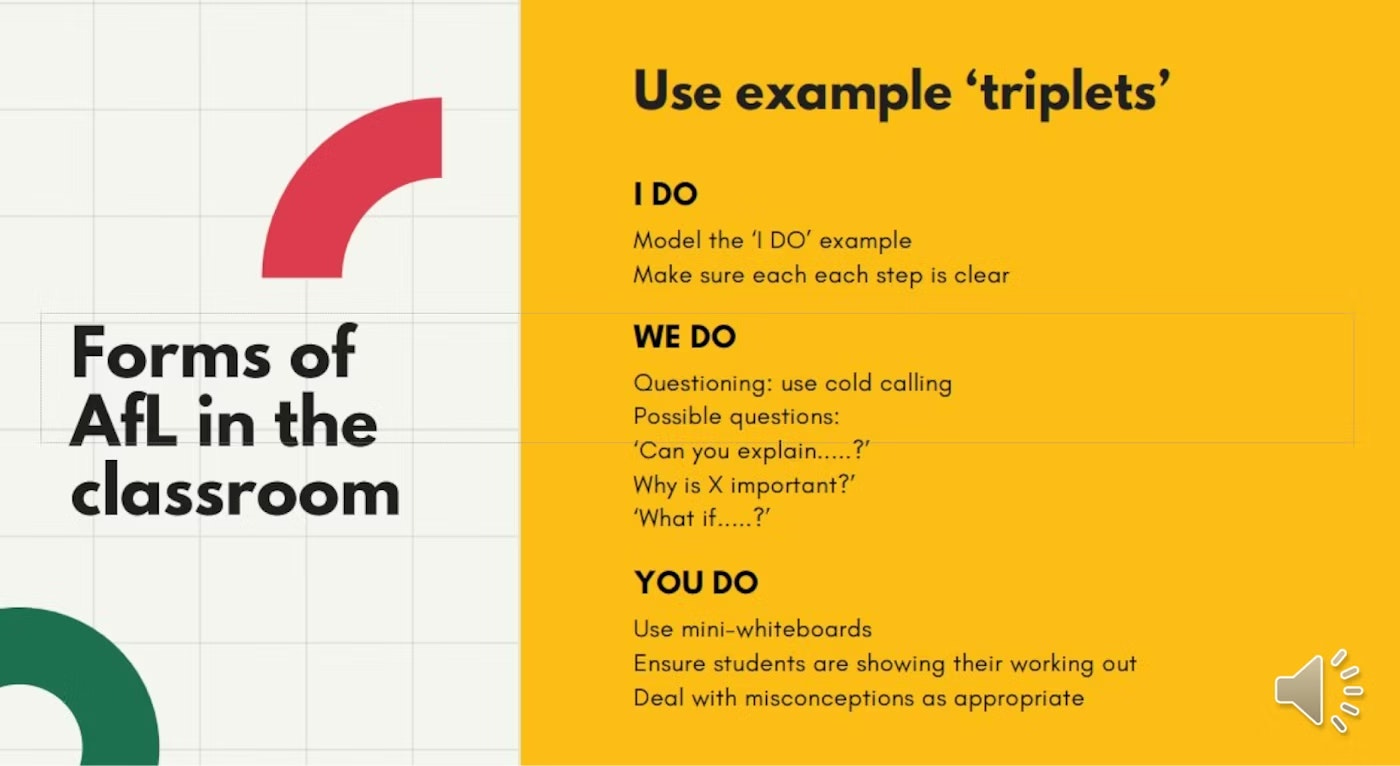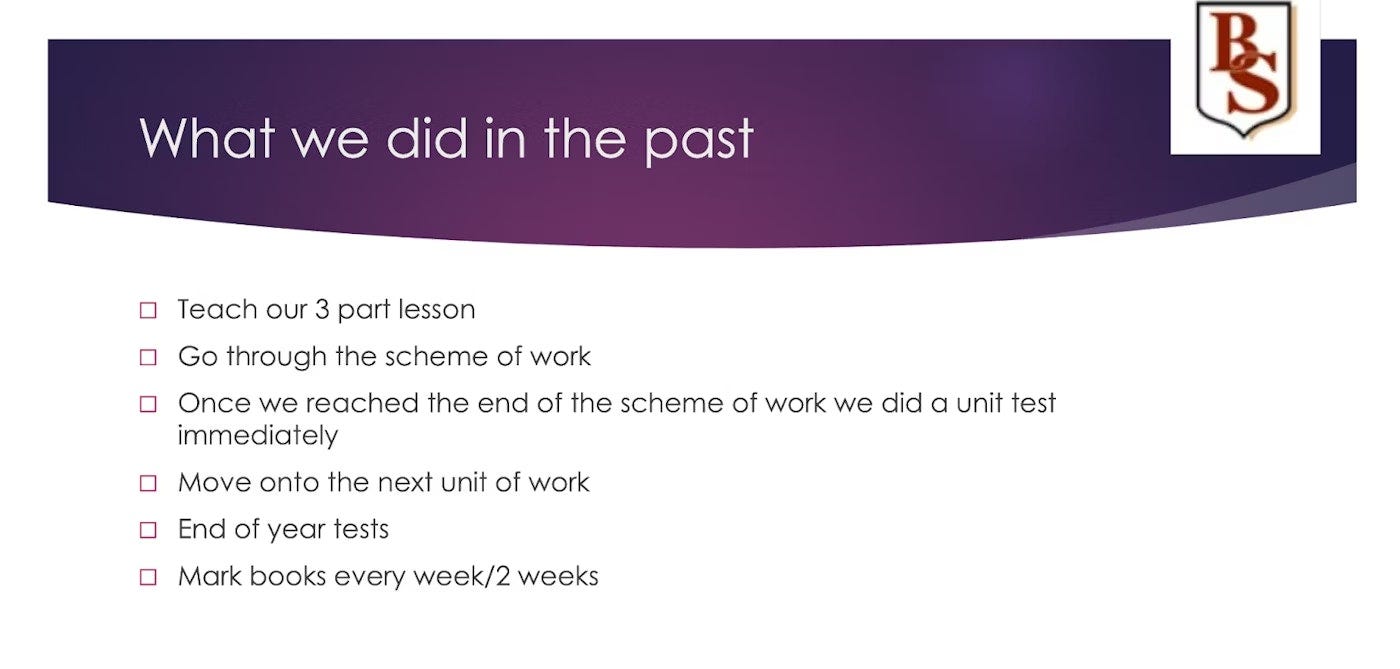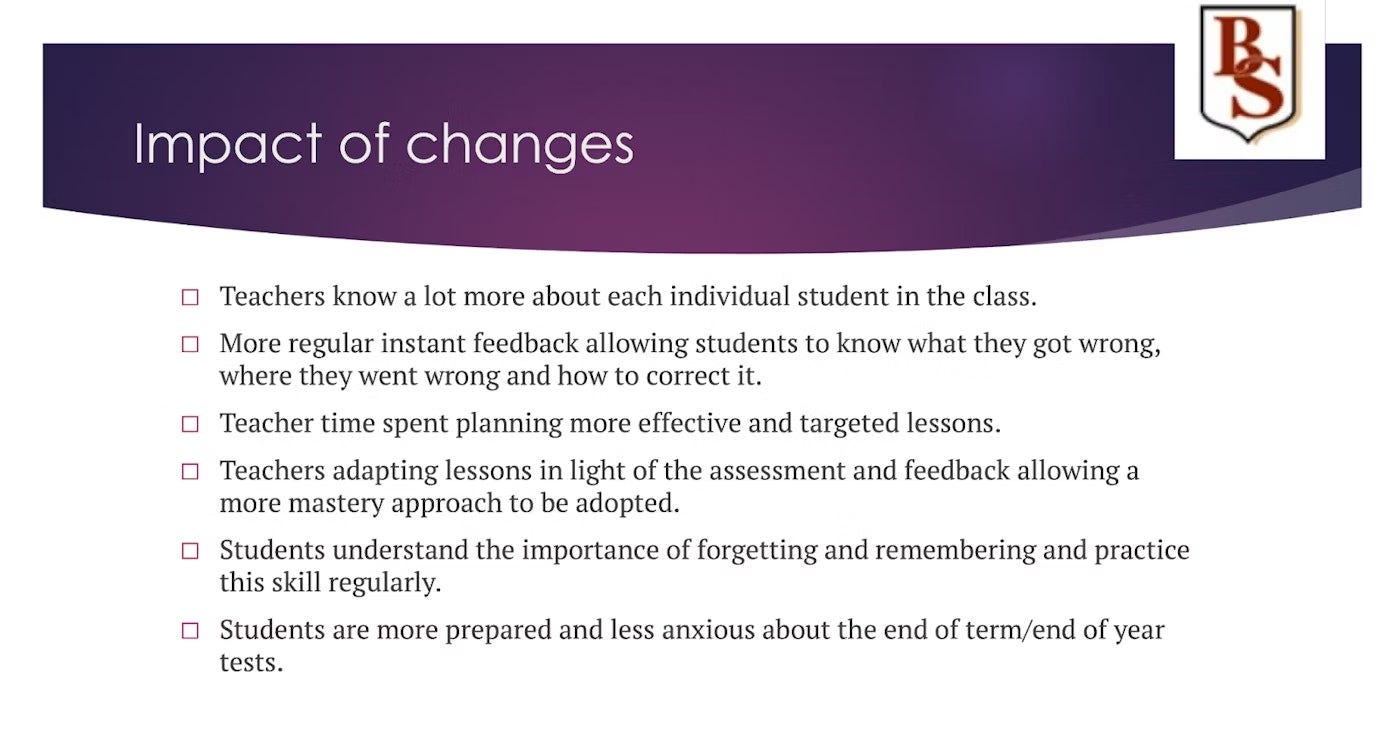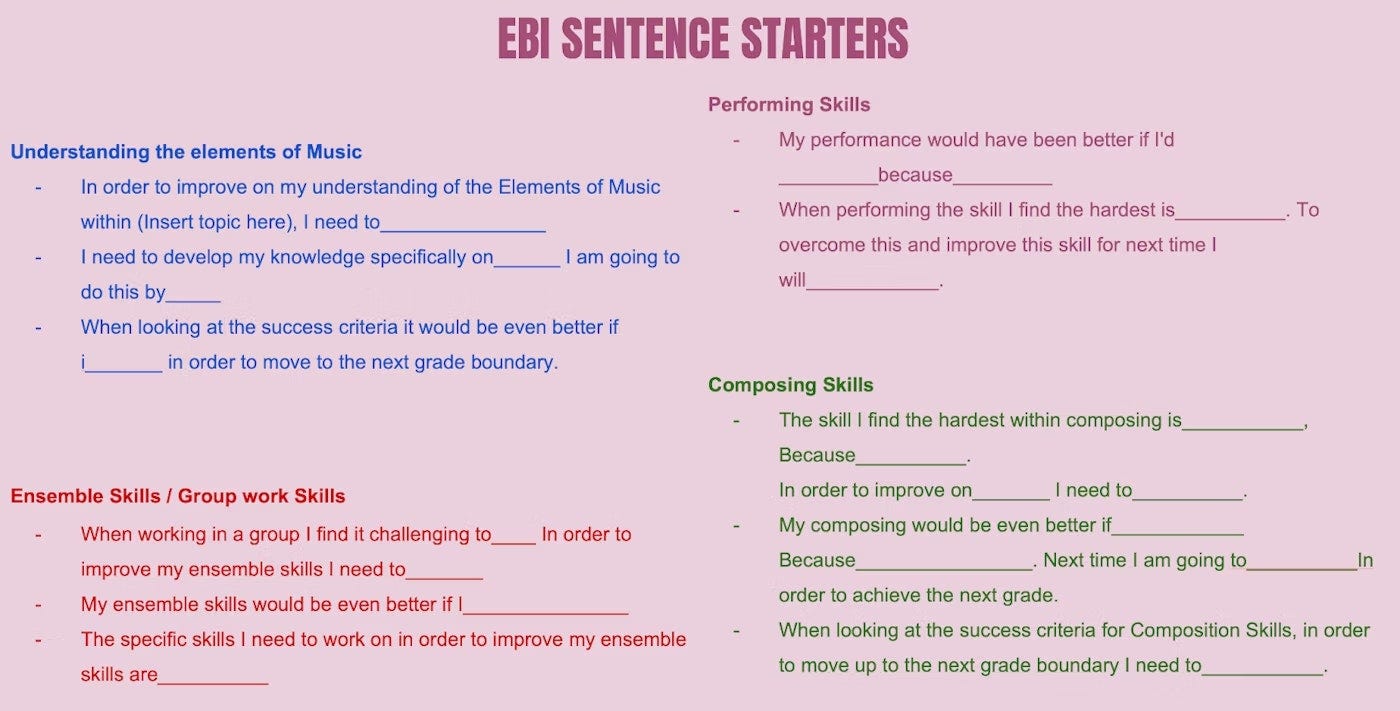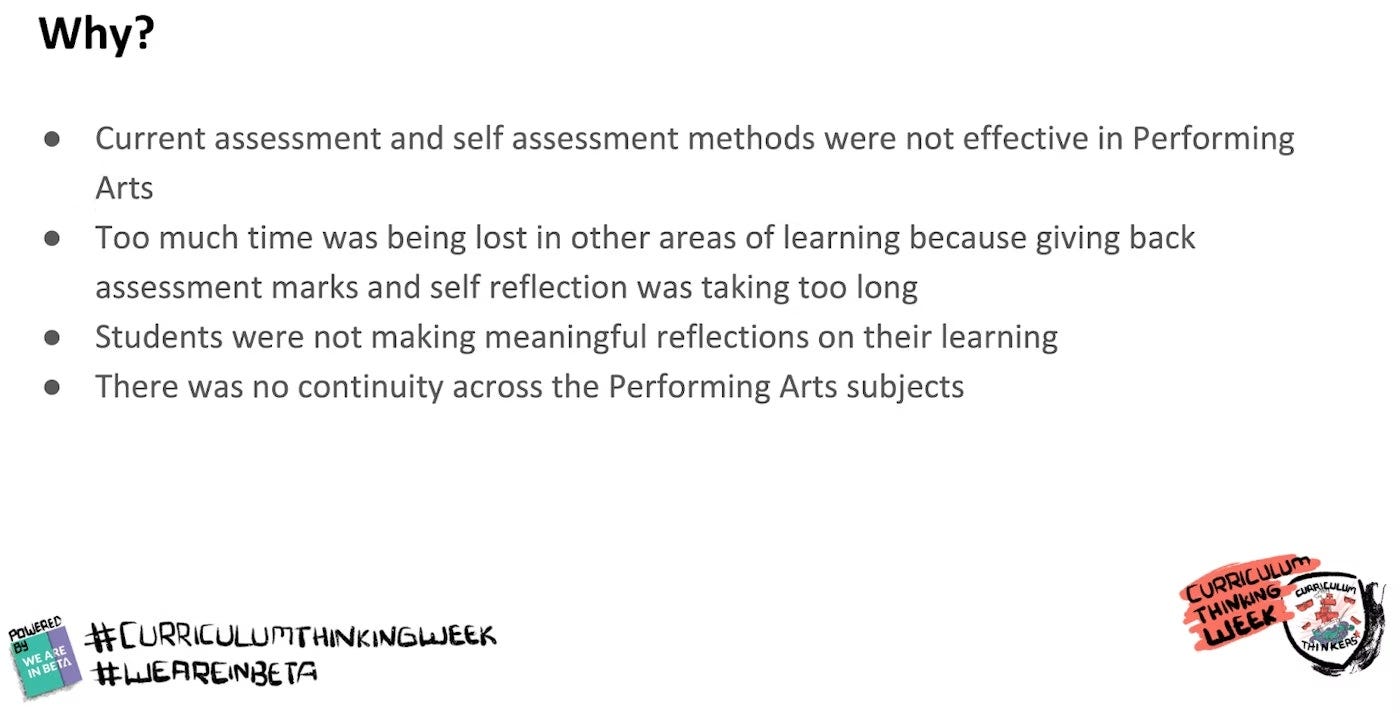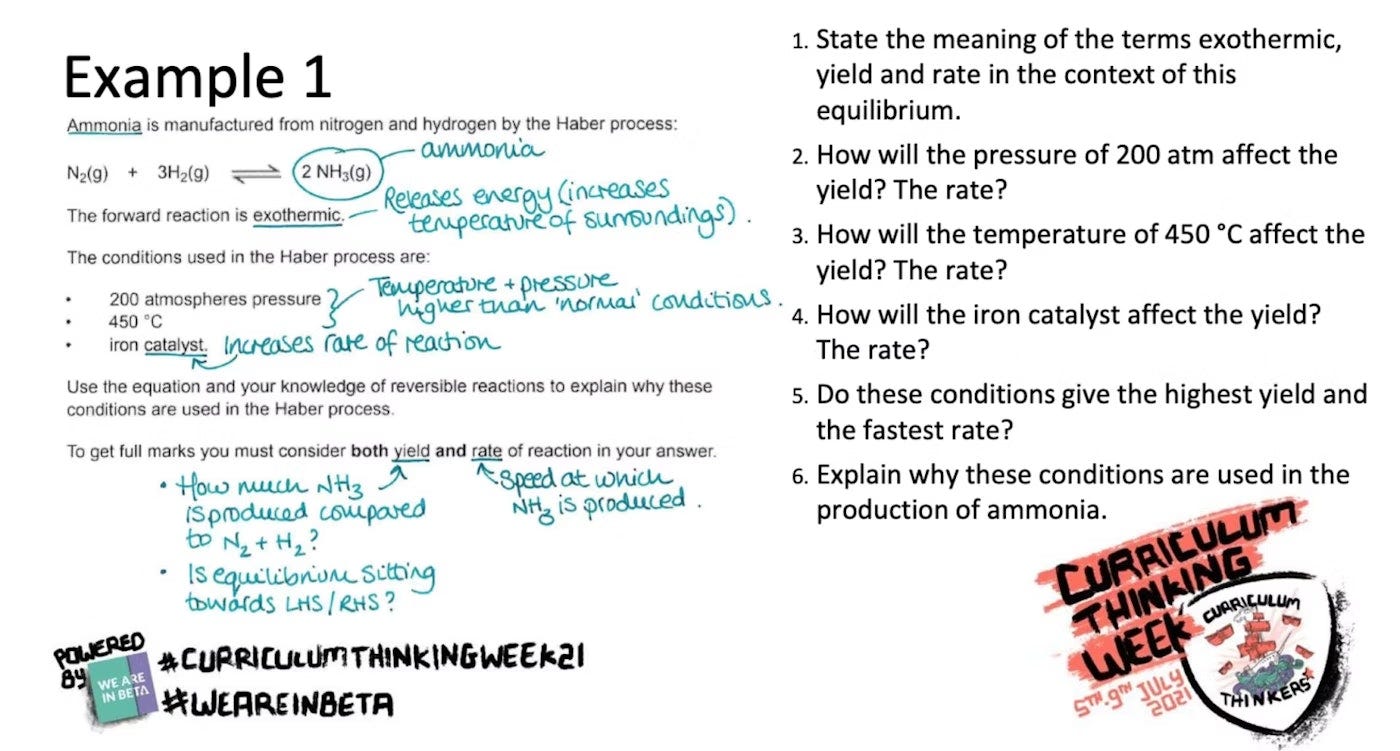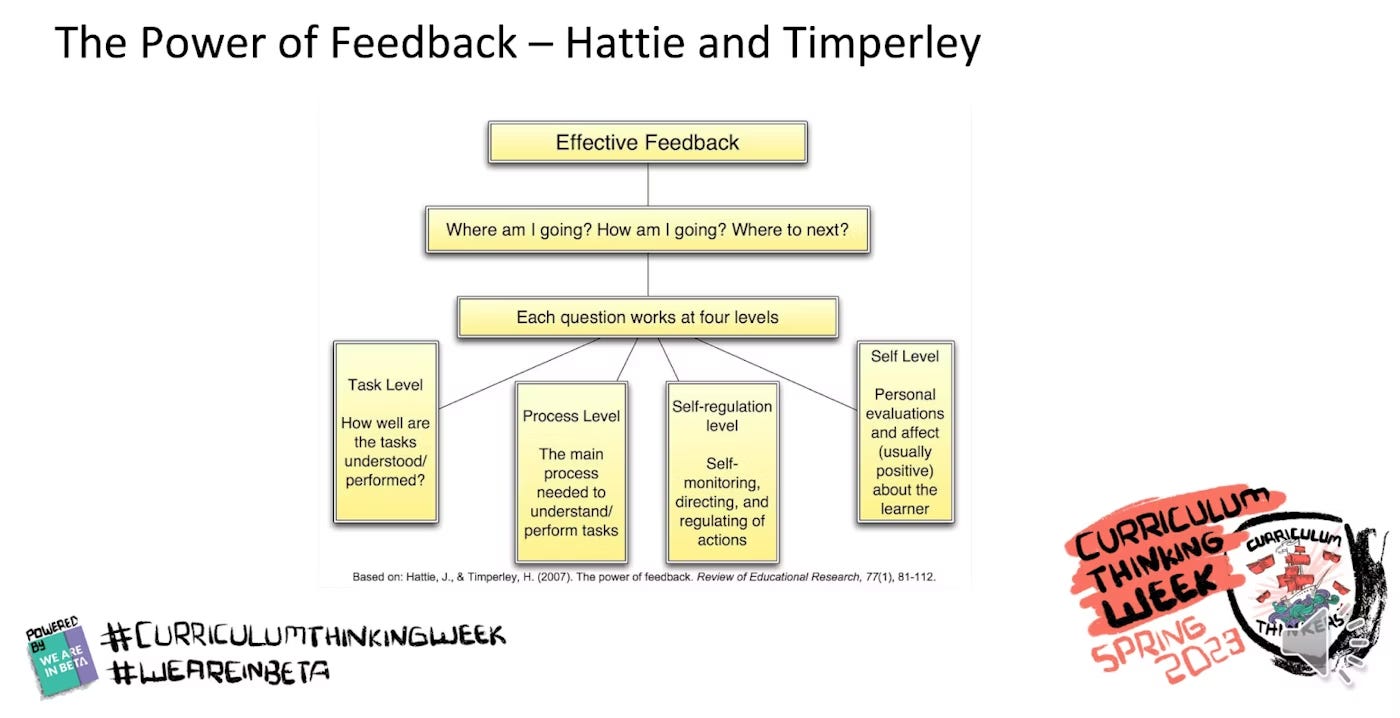AfL and Formative Assessment: subject specific examples
Plus disciplinary literacy and key resources to help you share your work.
This is another guest post by our wonderful Curriculum Thinkers Community member, Louise Ferrier. If you find it useful, she’d love to hear your thoughts in the comments here. We hope the exams are going well. Enjoy the half term when it comes.
Last week, our excellent community member, Louise Ferrier, explored how schools in the Curriculum Thinkers Community are finding success in their AFL/formative assessment processes.
Formative assessment remains one of the most powerful tools we have to support student progress; it can provide timely insights that shape teaching and learning in real time.
This week we turn our attention to some subject specific examples of utilising assessment and feedback to support learning through thoughtfully designed formative tasks.
Before we get into Louise’s subject specific AfL findings, two quick announcements…
1. 📆 Curriculum Thinking Week - key resources (and dates), nominations and sessions submissions.
Members have been busy nominating colleagues and submitting sessions for our Curriculum Thinking Week conference from June 30th to July 4th.
If you’ve not yet nominated or submitted, here are the key resources you’ll need:
Sessions shared last year
Form to tell us you would like to speak
Template slides - as GSlides or as PowerPoint.
Form to tell us someone in your team is doing incredible work
Free speaker access to see what speakers have delivered in the past
We’d love to have you involved.
If you’d like to join the line up, here are some key dates:
By 4th June - tell us you'd like to speak in this short form
By 16th June - share an outline of your session in this form
By 20th June – create and upload your video, supported by your SLT
w/c 30th June – conference goes live! Jump in to meet fellow speakers, discuss sessions and learn from a wealth of ideas and resources on offer.
What are you (or your team) working on that’s making the biggest difference to your students’ outcomes in your subject?
Whether it’s… reading, writing, exam prep, AI, targeting groups such as SEND or something else…
…we’d love to help you show others what it looks like in your classrooms, celebrate it and get feedback on it for you.
2. 📚 Future Academies’ Reading Series… continues
In part 1 of this series, the excellent Georgie Charles (Trust Lead for English) shared how they develop reading for pleasure across their schools.
She unpacked the:
Three pillars of literacy
The six aims of their strategy
How reading for pleasure is delivered by adults during reading sessions
Lessons they’ve learned through the process
If you missed it, catch up here.
The series continues with… Ciara Sutton discussing…
📺 Disciplinary Literacy - High leverage approaches to reading across the curriculum
📆 Thurs 5th June at
🕔 4.30pm
Date for your diary
Whole-school reading for pleasure (Aired on Mon 19th May)
Disciplinary literacy: high leverage reading across the curriculum (Thurs 5th June)
Disciplinary literacy: high leverage oracy and vocab (Mon 23rd June)
Disciplinary literacy: high leverage writing across the curriculum (Weds 2nd July)
Strategic interventions for reading for progress (Weds 9th July)
More info about the whole reading series here
AfL and Formative Assessment: subject specific examples
Business
The John Taylor Free School’s business department has been structured around evidence-informed systems, including assessment to inform learning. They use knowledge trackers to identify misconceptions needing to be addressed and review tickets for retrieval of knowledge. Learning organisers have helped students to prepare for the end of unit assessment. They have found that students are more confident when it comes to assessment preparation.
Watch the full presentation here.
Drama
At Copleston High School the drama department’s approach begins with a baseline assessment completed without prior input. This allows teachers to identify starting points and gaps in understanding. Students are then introduced to knowledge organisers and engage in targeted practical work designed to expand and develop their initial ideas. Students are required to reflect on both their own and their peers’ performance as part of the process. They return to the original task later in the unit, applying their new learning to demonstrate deeper understanding and work towards mastery.
Watch the full presentation here.
Geography
The approach in geography at Twynham School TGS was formulated with the end goal in mind. They have invested a lot of time and thinking into the development of summative assessments and as a result, have developed a number of tools to scaffold towards success in those assessments. The consistent experience they have created involves explicit revision techniques taught, deliberate practice and retrieval of the content of knowledge organisers as part of the formative journey.
Watch the full presentation here.
Some resources and recordings are only available to paying members of the Curriculum Thinks Community who can:
learn from hundreds of recordings covering every aspect of curriculum development across 20 subjects
download 2000+ resources - both whole school and subject specific
access 700+ academic related policies, plus analysis of them, from successful schools - T&L, assessment, homework and more.
Not a member yet?
History
The history department of Blessed Thomas Holford Catholic College have pur planned formative assessment points throughout the curriculum which are centred around live marking and self assessment. They wanted to be responsive to real-time misconceptions and needed to be creative in their approach to formative assessment planning to allow this to happen.
The Chiswick School stripped back the marking policy to realign the focus on feedback and making progress. The history department focused on limiting the marking of formative assessments to focus more on real time feedback and troubleshooting. When providing any written feedback on formative pieces, the amount written is limited to what is truly valuable and effective, leading to worthwhile reflective responses to feedback from students.
Watch the full Blessed Thomas Holford Catholic College presentation here.
Watch the Chiswick School presentation and access the marksheets here.
Maths
The AfL practice at Challney High School for Girls’ maths department favours the I do, we do, you do approach, with a number of strategies utilised within that model. As a team, they give time to prepare for common misconceptions before the lesson cycle. This ensures that they are checking for these in real time during lessons and are ready with the efficient interventions as and when needed.
The maths department of Beaumont School shared in their presentation just how much planning around formative assessment has shifted the way they approach their curriculum:
The process has led to less focus on ‘marking’ and a greater emphasis on the power of feedback in many forms. The approach has also led to a wide variety of tools being used to formatively assess which are discussed in detail. The impact of the shift in their approach has also improved an understanding of student progress.
Watch the full Challney High School for Girls presentation here.
Watch the Beaumont School presentation here.
Music
The music department of King's Academy, Binfield uses chromebooks to create records of student progress. Students can access these at any time which allows for reflection and regular completion of self assessment via the technology - quick, efficient and accessible.
Watch the presentation here.
Science
Beaumont School’s science department found themselves frustrated by the way in which exam questions were being used to assess learning at KS4. This didn’t provide enough information to diagnose the learning issues and to intervene.
They decided on a more ‘fruitful’ approach to assessment questions in order to create the conditions to gather useful diagnostic information. Example exam questions are broken down into the key components of knowledge and skill required, and questions developed to assess those components. They have found this has helped to assess prior knowledge frequently and identify knowledge gaps to be closed much earlier.
At Orchard Park High School’s science department, formative assessments for KS3 have been developed using carefully crafted mcqs for quick and regular formative assessment in systems that students are quickly used to.
Additionally, formative assessments include regular retrieval of knowledge from previous units to determine that learning is being committed to long term memory.
Watch Beaumont School’s full presentation with er examples here.
Watch Orchard Park High School’s presentation here.
Social Science
The social science department of Dover Grammar School for Girls’ started their journey of improving formative assessment feedback with coded AfL sheets for time-efficient ways to give formative assessment feedback, but at the same time focusing on key skills. Students then use the feedback to redraft a specified section with the focus on the feedback target.
Watch the Dover Grammar School for Girls’ presentation here.
Sent this by a friend?
💼 Jobs with We Are In Beta community members.
If you want to get your vacancies seen by the 23k school leaders and teachers who receive We Are In Beta newsletters across curriculum, pastoral and more, let us know here and we’ll send more info.
Senior Leadership
Director of Key Stage 4 - The Wren School, (Excalibur MAT, Reading). Apply here.
Middle Leadership
Lead Practitioner of Maths - Gloucester Academy (Greenshaw Learning Trust, Gloucestershire). Apply here.
Head of History - Gloucester Academy (Greenshaw Learning Trust, Gloucestershire). Apply here.
Head of Maths - Yate Academy (Greenshaw Learning Trust, Bristol). Apply here.
Teaching
Maths - Gloucester Academy (Greenshaw Learning Trust, Gloucestershire. Apply here.
Support roles
3rd Line IT Engineer - The Priory Learning Trust (North Somerset). Apply here.
Sent with ❤️ from the Curriculum Thinkers team at We Are In Beta.









